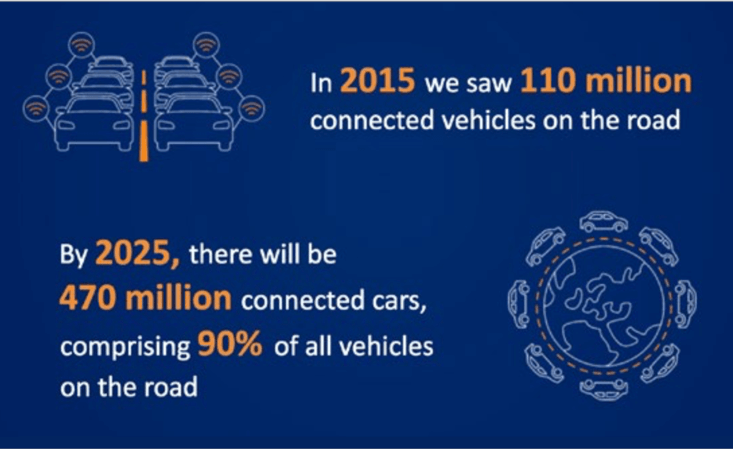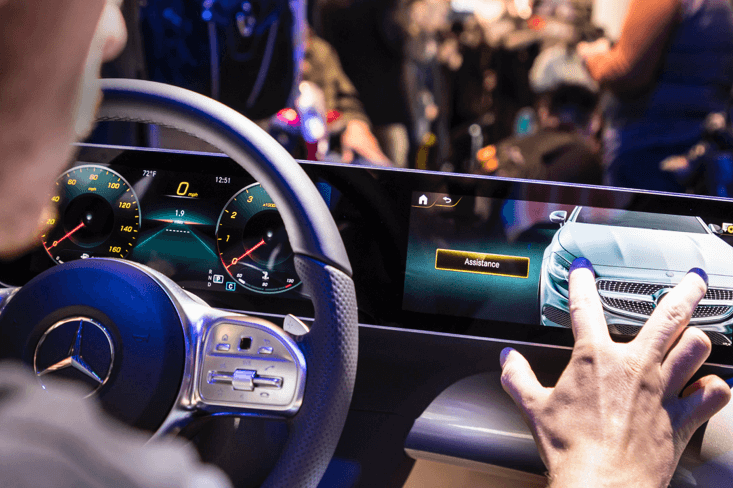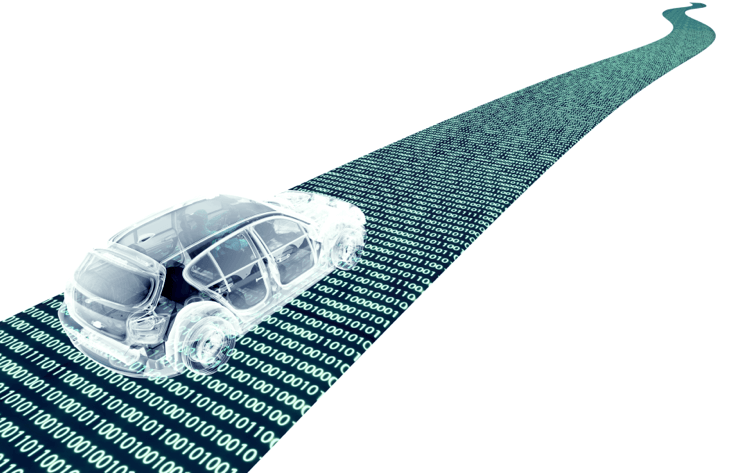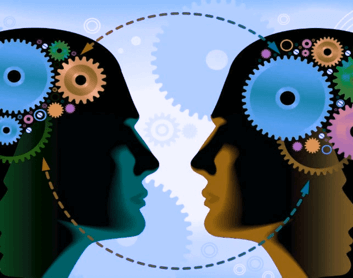
Could my next car save me from getting pulled over?
While working on a project related to connected cars, I was flagged down by the police and asked with a flashlight pointed in my face, “Do you know why I pulled you over?”
I knew I wasn’t speeding, hadn’t committed any operator errors, and had just had my car inspected. I blankly replied “No.” After waiting for half an hour with blue lights flashing while the police officer looked me up in their database, I learned that my registration had expired. I was informed that it was an “arrestable offense” and given a ticket.
As you can imagine, the whole situation was incredibly stressful. As a busy mother of three, I have come to rely on reminders for just about everything in my life but I had completely forgotten to renew my registration. As I was handed the ticket I went through a range of emotions, mostly regret that I’d let this happen.
Connected cars are doing more to assist drivers
In the state of Maine where I live, the DMV doesn’t send vehicle owners either hard copy or electronic reminders of their annual registration deadline, leaving it to the owner to remember to renew on time. I forgot this year and paid the price, which got me thinking about the connected cars of the future, always on and doing more and more to assist their drivers.
I’d just completed a round of research interviews with owners of connected cars and heard about all the features they had fallen in love with. One participant told me his car had averted two accidents from happening by braking for him. This same participant talked about the driver assist feature that prevented his car from drifting out of lane and could monitor blind spots. Another told me about SOS services that use seat sensors to inform emergency response units how many passengers are in the car in the case of an accident, so they will dispatch the right number of ambulances. And the Tesla owners I interviewed were very animated as they told me about the “Summon” feature on their mobile app, eagerly awaiting a time when they can arrive at the airport on a cold night and have their car drive itself to them.
Cars as the ultimate mobile device
As I sat there in my 2009 Honda, I started to feel very disconnected from the new driving reality that is unfolding. It is predicted that by 2025, there will be 470 million connected cars, comprising 90% of all vehicles on the road. The first autonomous, series-ready, self-driving vehicles are anticipated in 2023 and by 2030 it is estimated that there will be around 80 million such cars in circulation in Europe, the USA and China.
 Source: Guardknox webinar 2019
Source: Guardknox webinar 2019
What if in addition to helping you drive more safely, or assisting you with parking, cars of the future could send simple notifications to remind you to renew your registration or get your vehicle inspected? And the beauty of the connected car would be that instead of competing for attention on my phone, these notifications could also go straight to my vehicle. The large digital displays that these newer cars include for navigation, infotainment, and other driving-related features could also help with predictive maintenance, including simple things like annual inspection and registration renewal. Connecting my car with the DMV database so that I can stay legal seems like a small ask when I think of all the things connected cars can now already do.
 Mercedes Benz User Experience: revolution in the cockpit
Mercedes Benz User Experience: revolution in the cockpit
Smart cities are part of the equation
It is not only cars that are getting smarter and becoming more connected, our cities are too. Today cities are using data and digital technologies to be more relevant to both residents and drivers that pass through them. Providing notifications on the best times to travel, optimizing traffic lights to reflect actual traffic flow or highlighting open parking spots are just some of the things these smarter cities could assist drivers with in future. But of course, providing this smart infrastructure will cost money. Knowing that my registration fee helps support this makes me feel good. Learning that many states are no longer sending out renewal notices and that some states are using this to their advantage to accrue revenue does not. How can it be possible that in this increasingly connected universe, automated online registration renewal is not an option?
The number of connected devices is likely to quadruple over the next 5 years. I’m excited to think about the digital transformation that will impact cities, making them more livable and more responsive. Using a combination of traditional construction and smart solutions, cities could also respond more dynamically to changing demand. And with more connected cars on the roads, the opportunities for positive exchange of information from device to vehicle to city are exponential.

Learning by being burned
One participant I interviewed described his fears of “losing his driving freedom” in this connected future and was planning to sell his connected car in favor of his older, more powerful disconnected one. It seems not everyone is excited at the prospect of their car being always on and making driving decisions for them, but I for one will be happy to trade up for a car that tells me what it needs when it needs it. My lapsed registration ended up costing me a ticket and caused some marital stress. While I hope the connected world of the future doesn’t mean a complete loss of data privacy or a police state, I would embrace a reality where my car actively helps me to manage the demands of an increasingly busy world.


